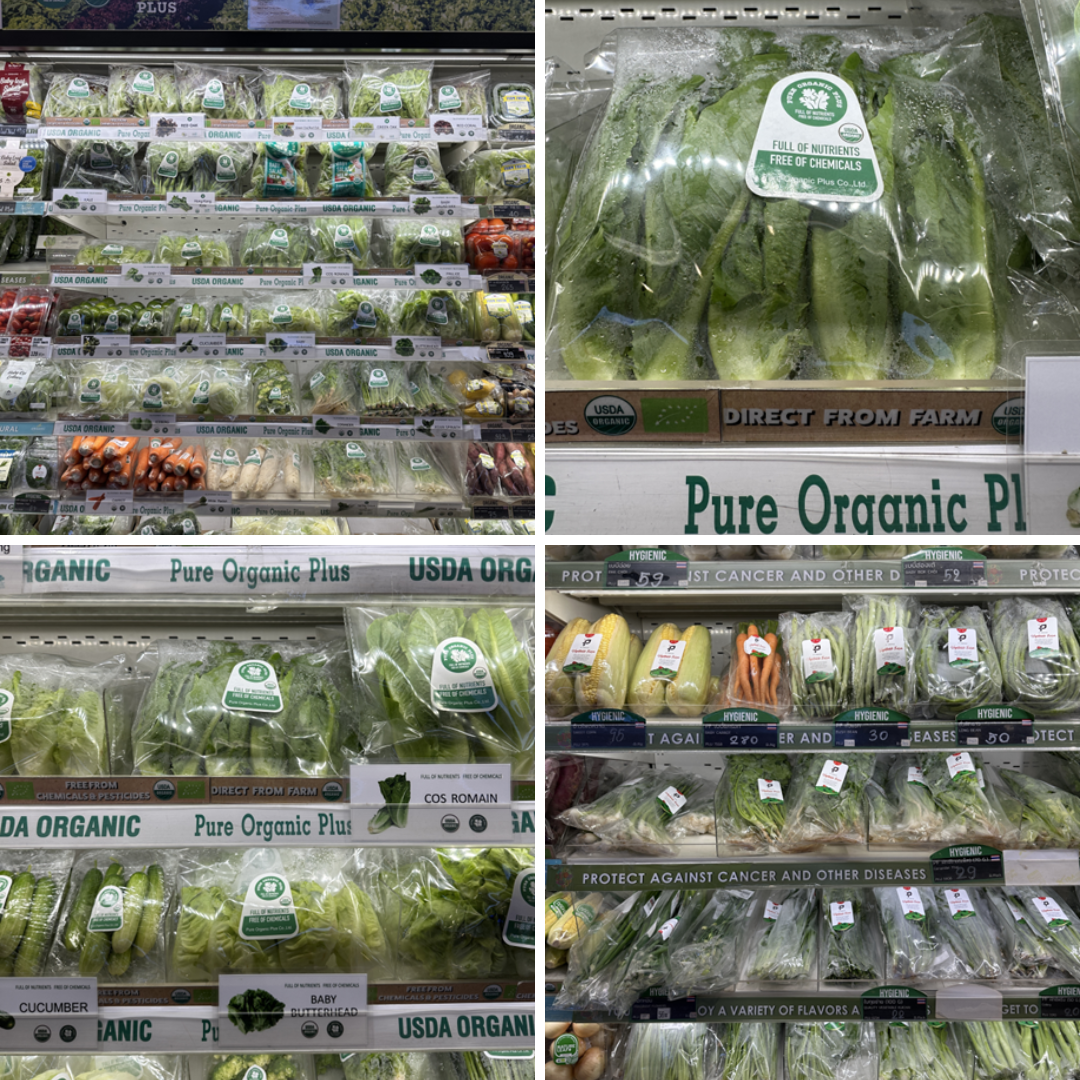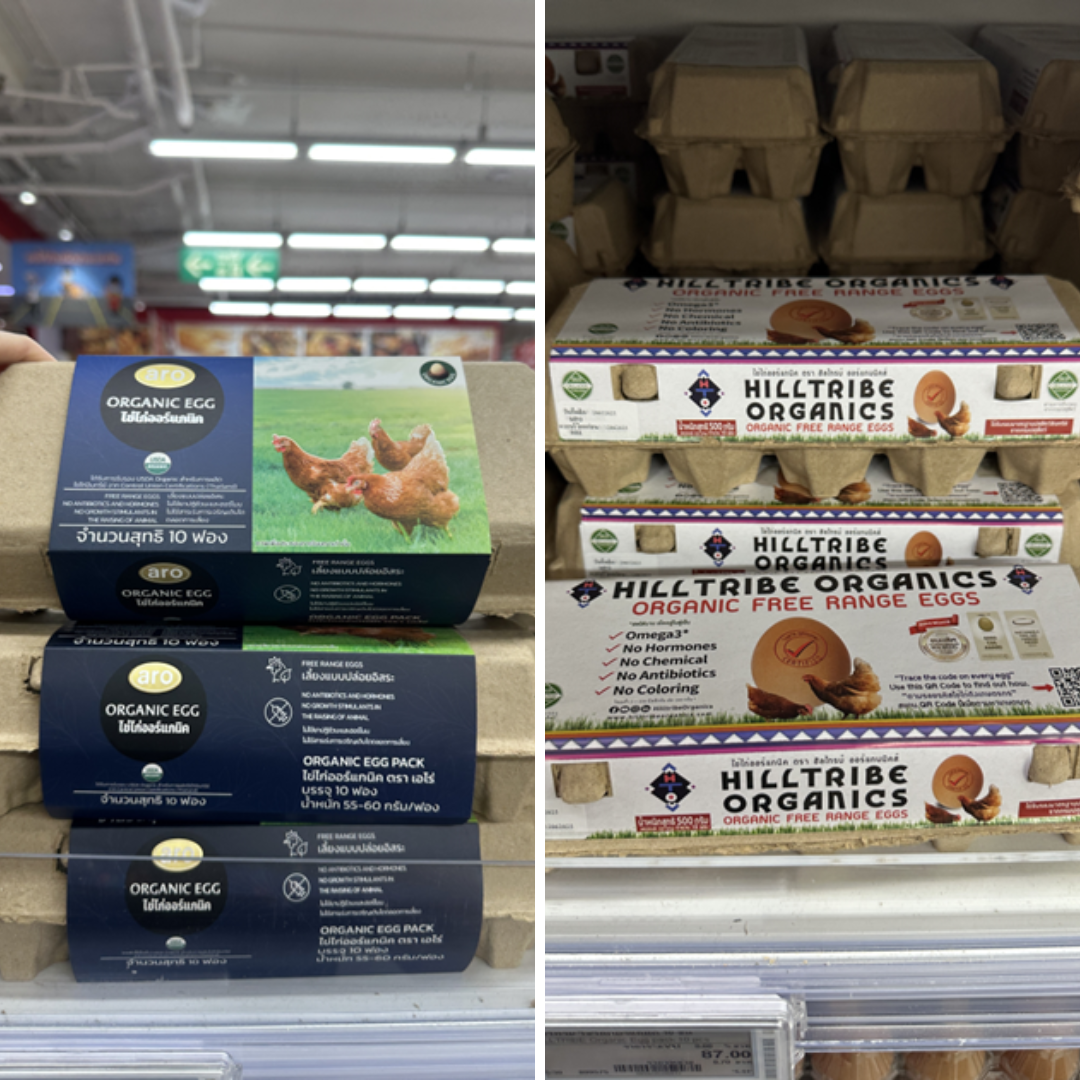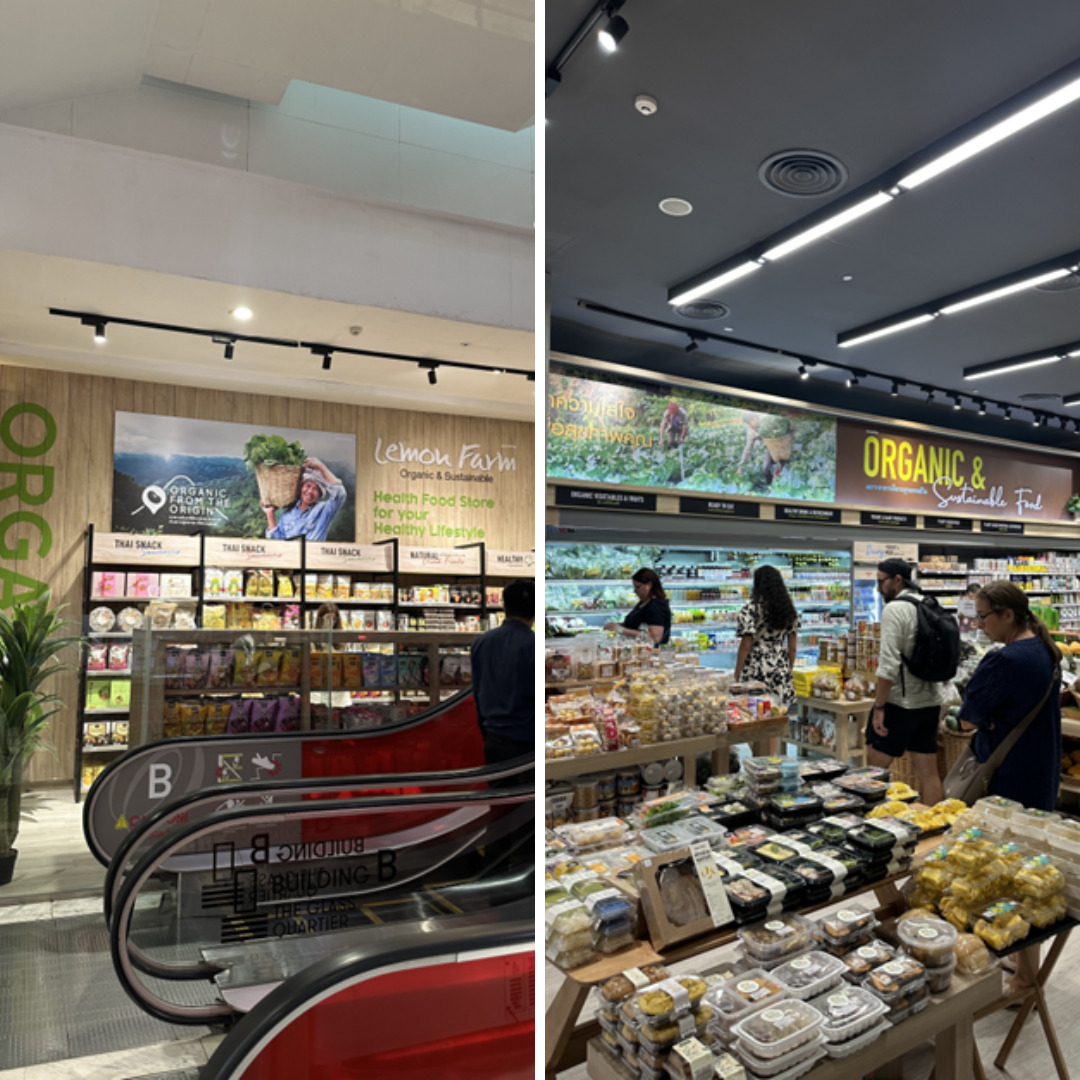 Last month, the Organic Trade Association (OTA) attended Thaifex in Bangkok, Thailand. The OTA booth showcased various USDA organic products from seven U.S. companies: American Trading International, Califia Farms, Danone North America, Organic Valley, PURIS, US Durum Products, and VerMints. The show featured 3,231 exhibitors from 57 countries, with 88,349 visitors from 143 countries over the course of five days. This event was a first-time engagement with the Thai market, as well as the first year the USDA endorsed Thaifex.
Last month, the Organic Trade Association (OTA) attended Thaifex in Bangkok, Thailand. The OTA booth showcased various USDA organic products from seven U.S. companies: American Trading International, Califia Farms, Danone North America, Organic Valley, PURIS, US Durum Products, and VerMints. The show featured 3,231 exhibitors from 57 countries, with 88,349 visitors from 143 countries over the course of five days. This event was a first-time engagement with the Thai market, as well as the first year the USDA endorsed Thaifex.
The organic food market in Thailand has significantly evolved in the past decade. Thai consumers are increasingly choosing organic products due to shifting preferences driven by health concerns, environmental awareness, and a focus on quality. As in many Asian markets, organic food in Thailand is generally prioritized by older, higher-income consumers. Supermarkets with more organic food options — especially imported organic products— primarily serve affluent consumers and expatriates. OTA’s in-market retail tour focused on leading retailers in Bangkok—Tops Food Hall, Villa Market, Makro, Gourmet Market, and Lemon Farm—to pinpoint key trends in the Thai market to better promote U.S. organic exports.
 According to Euromonitor, “organic” was the leading health and wellness claim in staple foods in 2023, with retail value sales totaling THB 6 billion. During OTA’s organized retail tour of various grocery stores in Bangkok, the selected markets ranged from more premium options like Tops Food Hall to broader customer bases like Makro. In particular, Tops Food Hall and Villa Market showcased the most organic options. Tops Food Hall, a flagship premium food retail concept operated by Central Food Retail with locations around key areas of Bangkok, primarily caters to affluent consumers, with over 50,000 SKUs from more than 76 countries. Organic and local themes are embedded in the store’s branding, with messaging about the positive impact the retailer has on local communities and sustainable farming scattered around the market, and even an organic salad bar callout. The strongest presence was within the fresh produce section, with primarily Thai-produced and certified organic options.
According to Euromonitor, “organic” was the leading health and wellness claim in staple foods in 2023, with retail value sales totaling THB 6 billion. During OTA’s organized retail tour of various grocery stores in Bangkok, the selected markets ranged from more premium options like Tops Food Hall to broader customer bases like Makro. In particular, Tops Food Hall and Villa Market showcased the most organic options. Tops Food Hall, a flagship premium food retail concept operated by Central Food Retail with locations around key areas of Bangkok, primarily caters to affluent consumers, with over 50,000 SKUs from more than 76 countries. Organic and local themes are embedded in the store’s branding, with messaging about the positive impact the retailer has on local communities and sustainable farming scattered around the market, and even an organic salad bar callout. The strongest presence was within the fresh produce section, with primarily Thai-produced and certified organic options.

The retailers often call out the country of origin for products with small flag labels on the shelves. Australia, France, and Italy were the primary callouts, with some scattered U.S. highlights mainly among the packaged goods, organic, and conventional.
Organic branding and labels in Thailand clearly reflect the local market’s values and standards. Packaging often highlights the perceived benefits of organic products directly on the label. For example, N&P Organic, a Thai brand specializing in certified organic foods, prints messages such as “We are Committed to Organic foods, Environmental Protection & Sustainability” and “We believe that the earth’s finest, most delicious and most wholesome foods are produced when we treat the nature right,” alongside the Thai Organic Certification Seal on all organic produce packaging showcased in Tops Food Hall. These messages appear in English, suggesting the brand is targeting a more affluent and likely expatriate audience.
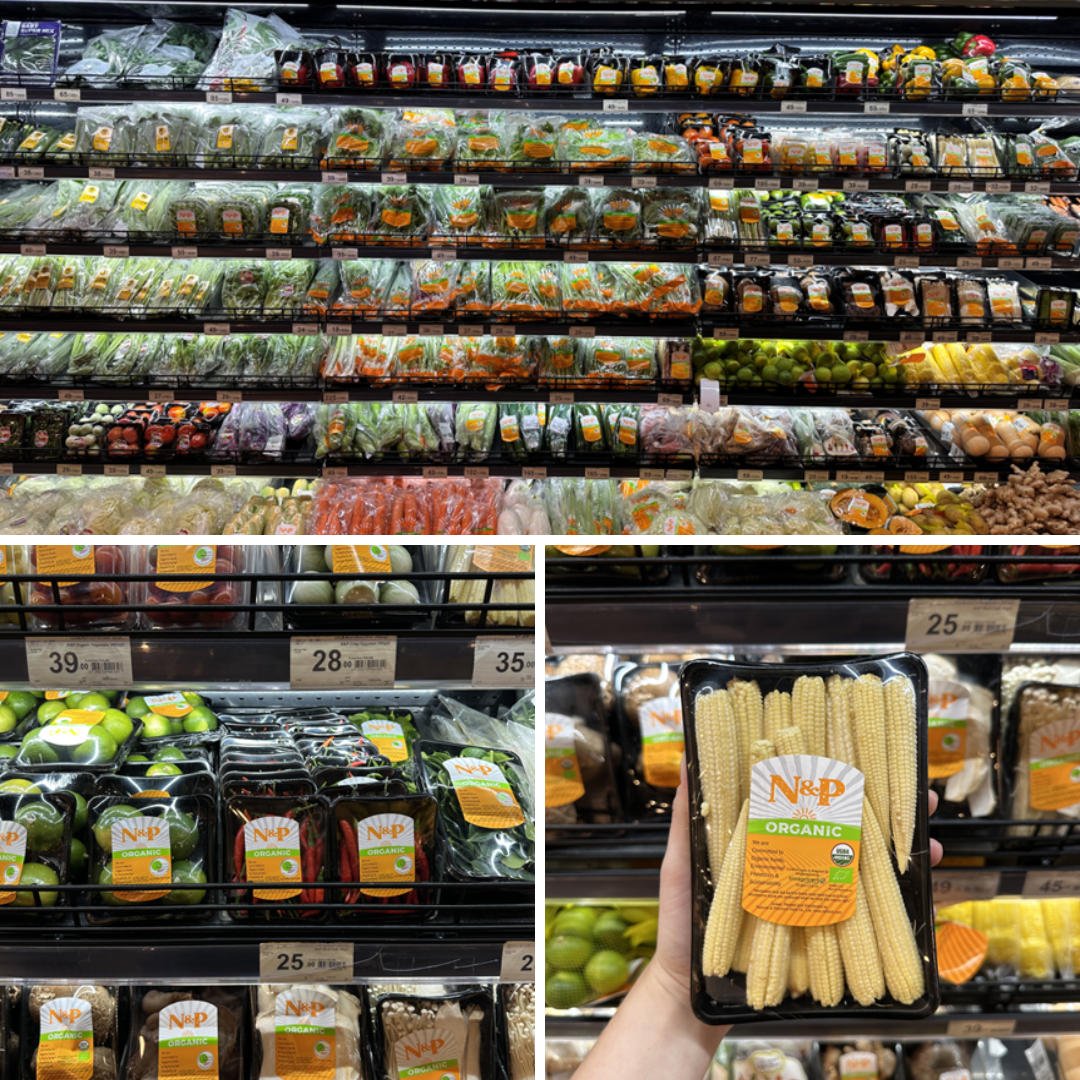
Meanwhile, at Villa Market, Bangkok’s original international supermarket chain with 37 locations across Thailand, USDA organic certification was prominently promoted. “USDA ORGANIC” appeared alongside messaging such as “protect against cancer and other diseases” and “you get to enjoy a variety of flavors and textures,” lining the integrated label holders of the organic produce section, even though the produce was primarily Thai-produced. The overhead signage marketed the “benefits of organic food” alongside health claims like “enhances immune system” and “prevents cancer & premature aging,” to clearly present organic messaging to the in-market shopper. This is the first foreign market OTA has seen this type of organic messaging, indicating a strong consumer interest from the retailers themselves, even without direct promotion of USDA Organic certification by OTA or USDA. Further, packaging labels within Villa Market’s organic produce section highlighted “full of nutrients, free of chemicals” and other organic attributes.
This was also seen at MAKRO, one of Thailand’s leading wholesale cash-and-carry chains, within the organic egg section. Though this was the only organic presence within the supermarket, all the organic egg packaging displayed key relevant organic attributes such as “no antibiotics” and “no hormones” regardless of brand.
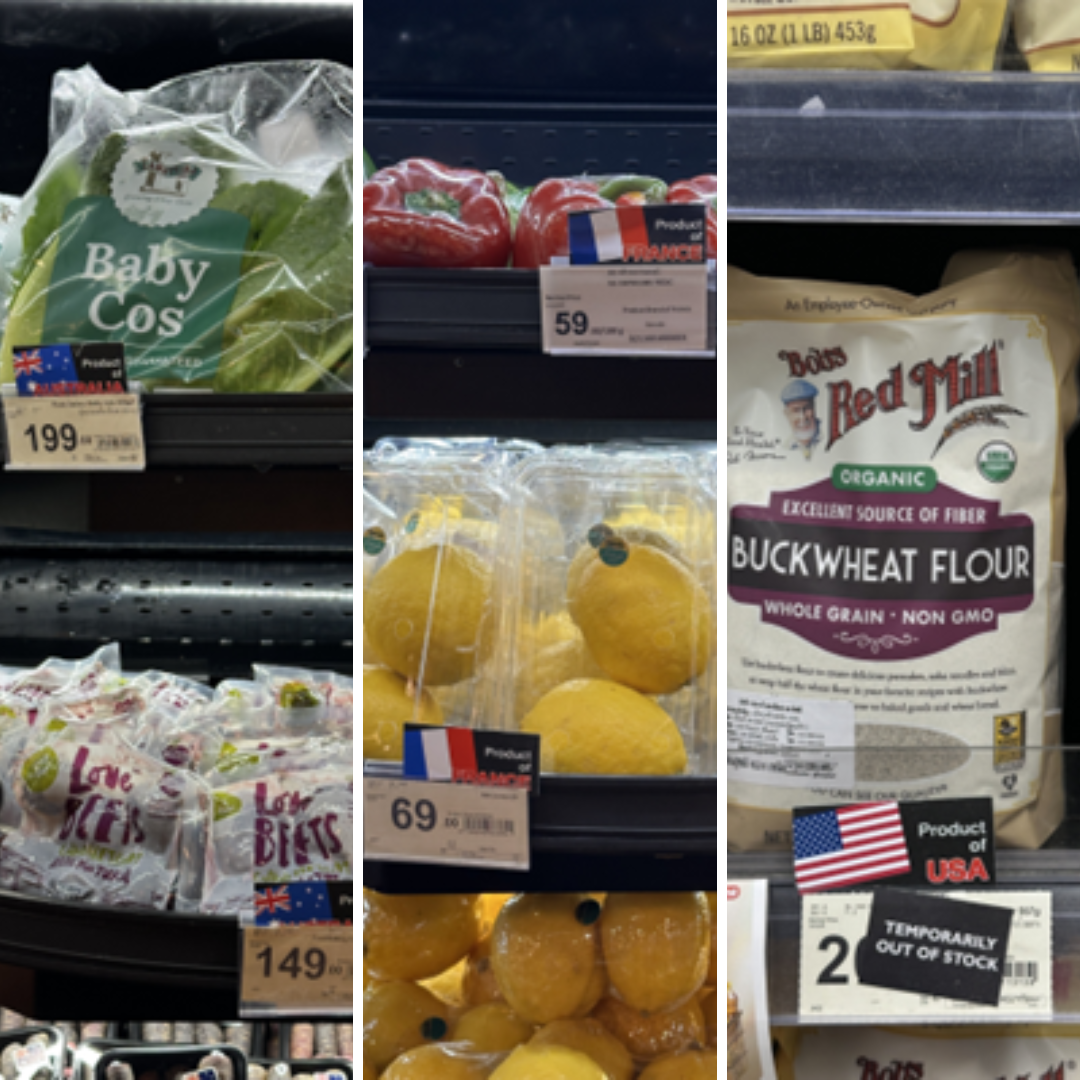
Smaller specialty retailers are also a key entry point for organic consumers. Lemon Farm, a prominent organic and natural food retailer with nearly 20 outlets in Bangkok, offers convenient opportunities for Thai consumers, given branches are located primarily in lifestyle hubs like malls and mixed-use complexes. OTA visited the Em Quarter location, located on the bottom floor of the shopping complex. With a growing online platform, this retailer offers a multi-channel exposure for imported organic foods, key for branding-building and regional testing of U.S. organic products to health-conscious consumers in Bangkok.
Generally, there is a strong presence of “natural” product marketing within all retailers explored, highlighting a critical opportunity for consumer organic education to call out the regulated elements of USDA organic compared to the non-regulated claims of natural products. OTA continues to engage with the Thai market through a multi-targeted approach of trade and consumer promotion activities supported by its USDA Market Access Program (MAP) and Regional Agriculture Promotion Program (RAPP) funding.
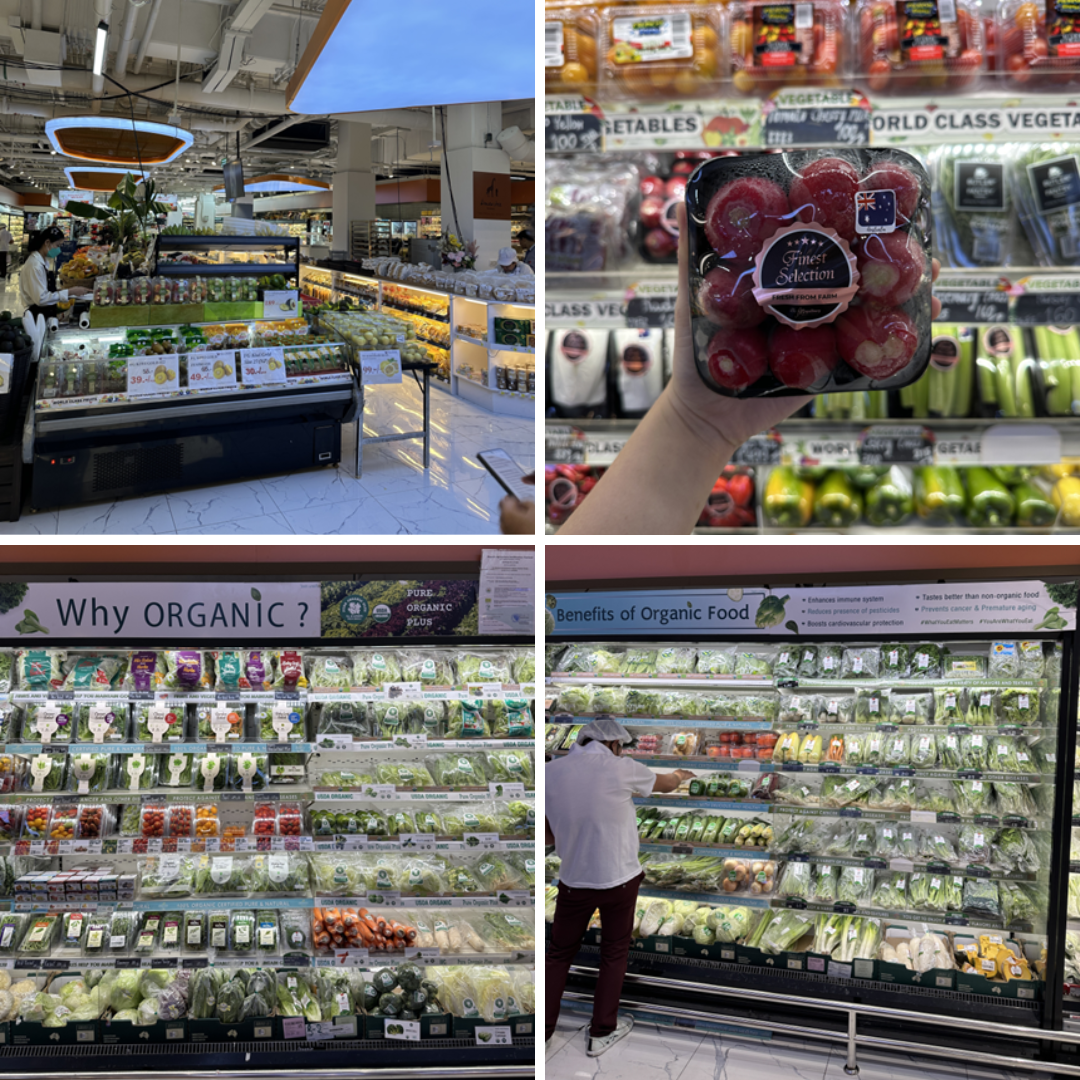
Thailand is the 25th largest market for U.S. organic exports, valued at $2.2 million in 2024, based on the eight tracked Harmonized System (HS) codes in the USDA GATS system. Unfortunately, HS codes only track a fraction of exports, and most processed products we saw in the market, as well as those sold by our tradeshow participants are not tracked by the system, resulting in underreported US organic exports. Although USDA organic certification is recognized and accepted by the market, Thailand also has its own organic certification, which is regulated by the Organic Agriculture Certification Thailand (ACT) and the National Bureau of Agricultural Commodity and Food Standards (ACFS). Thai organic certification is generally aligned with USDA organic certification, but there is currently no organic equivalency arrangement between the two countries.
If you’re interested in learning more about the Thai market or getting involved in OTA’s export programming, please reach out to OTA’s International Trade Manager, Sarah Gorman.
